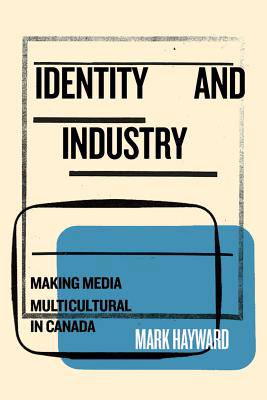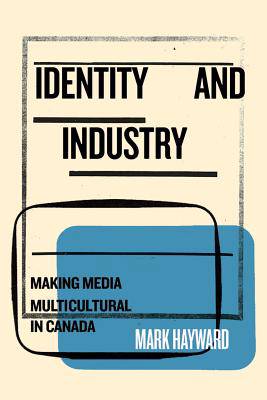
Door een staking bij bpost kan je online bestelling op dit moment iets langer onderweg zijn dan voorzien. Dringend iets nodig? Onze winkels ontvangen jou met open armen!
- Afhalen na 1 uur in een winkel met voorraad
- Gratis thuislevering in België vanaf € 30
- Ruim aanbod met 7 miljoen producten
Door een staking bij bpost kan je online bestelling op dit moment iets langer onderweg zijn dan voorzien. Dringend iets nodig? Onze winkels ontvangen jou met open armen!
- Afhalen na 1 uur in een winkel met voorraad
- Gratis thuislevering in België vanaf € 30
- Ruim aanbod met 7 miljoen producten
Zoeken
€ 177,45
+ 354 punten
Uitvoering
Omschrijving
In 1947, grocer Johnny Lombardi went on air for the first time to share the sounds of sunny Italy with the radio listeners of Toronto. Meanwhile, in cities across the country, a handful of theatres began to show films in foreign languages. In the decade after the Second World War, these events were some of the earliest indications of the nationwide changes taking place in Canadian media as it responded to the new cultural, political, and economic visibility of cultural and linguistic minorities. Identity and Industry explores how ethnocultural media in Canada developed between the end of the Second World War and the arrival of digital media. Through chapters dedicated to film exhibition, newspapers, radio, and television, Mark Hayward documents the industrial and institutional frameworks that defined the role of media in Canadian multiculturalism. Drawing on extensive archival research, the book situates late twentieth-century ethnic media at the intersection of demand, cultural integration, and the changing economics of popular culture. As the development of ethnocultural media continues to shape Canadian society in the age of digital media, Identity and Industry provides richly detailed historical context for contemporary debates about identity and culture.
Specificaties
Betrokkenen
- Auteur(s):
- Uitgeverij:
Inhoud
- Aantal bladzijden:
- 240
- Taal:
- Engels
Eigenschappen
- Productcode (EAN):
- 9780773558779
- Verschijningsdatum:
- 26/12/2019
- Uitvoering:
- Hardcover
- Formaat:
- Genaaid
- Afmetingen:
- 152 mm x 229 mm

Alleen bij Standaard Boekhandel
+ 354 punten op je klantenkaart van Standaard Boekhandel
Beoordelingen
We publiceren alleen reviews die voldoen aan de voorwaarden voor reviews. Bekijk onze voorwaarden voor reviews.











